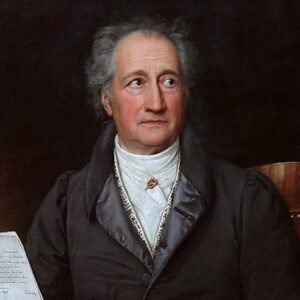There is a treatise written in ancient Greek. It was written sometime during the first few centuries of the Common Era. It is known as On the Sublime and might have been written in the 1st century CE. Or perhaps as late as the 3rd. Nobody knows. People used to say that Cassius Longinus wrote it. This has been disputed by the sorts of scholars who study such things.
Probably it should be said that On the Sublime was written anonymously since the very point that the person who wrote On the Sublime makes in the treatise On the Sublime is that authorship, in a sense, transcends authorship. Authorship is weird, the text says, and texts are weird. To be honest, On the Sublime doesn’t ever actually use the word ‘weird,’ not explicitly. This is my own paraphrase of the argument, which is not really an argument.
As a document, On the Sublime is strangely structured and also is missing various parts and is a fragmentary treatise all around. The text dwells in tiresome ways upon tiresome subjects of ancient style and rhetoric and other matters that are hard to wrap one’s head around from a 21st century perspective. The text is, then, in many ways the document of a lost time. It is hard to feel the urgency of the subject matter anymore. It is hard to bend your thinking so far in another direction, a past direction, into the ways and paths of a distant and to some degree opaque era. Doing this hurts the brain and is never entirely successful.
Nonetheless, the treatise On the Sublime contains an excellent response to all the possible objections to reading such an unsuccessful text as On the Sublime and what the argument boils down to is that all texts are unsuccessful, all texts are weird, all texts exist mostly just as an excuse for the one or two sentences that stick with you. The reason all writing is basically tiresome, according to the author of On the Sublime, is because all writing is generated by a person who thinks they want to say this or that or express this or that or argue this or that. Longinus, or whoever wrote On the Sublime, suggests that texts only really get interesting when they start to lose their way, when something else starts to speak out and through the writing, when the initial goal of the writing is blasted open by something else.
What is this “something else?” Hard to say, really. Longinus, or whoever, talks about loftiness of soul and grandeur and that which is awesome. The subject here is, after all, the sublime. But no one knows what the sublime is, not then, not now. And the treatise On the Sublime never comes to anything like a definition in the usual sense of the term. Instead, we circle around the idea and we circle around various examples, from Plato, to Demosthenes, to Sappho, to the Hebrew Bible, to various authors of antiquity known only to the past and to scholars of the past.
But the sublime is out there, that’s what the author of On the Sublime thinks. The sublime is out there and it makes its way from events in the world to events in the experiences of specific persons and then into events in the text. The author of On the Sublime compares this chain of sublimity to what happens when lightning strikes. Lightning passes through. But in passing through, lightning blasts open that which it passes through.
Insofar as writing can be said to channel lightning, then, it channels forces that it cannot control, forces over which the writer has no real command. You’ve got to have a kind of bigness of soul to let lightning pass through you. That’s what the author of On the Sublime says. It is an interesting point, a point that cuts against much of the actual practical, grammatical advice and analysis to be found throughout the rest of the treatise. On the Sublime provides specific advice about how to structure sentences and then, in essence, argues that the only real way to write a sublime sentence is to become the sort of person through whom sublime sentences will flow. These sentences, when they start to flow as they will flow, will be surprising. These sentences will be shocking, as shocking as the events, experiences, objects and situations that gave rise to them. One never knows when the lightning of the world or word will strike. One never knows why or where.
Perhaps the most intriguing fact about On the Sublime is that, in arguing for the sublime as a kind of lightning strike that passes through the writer and through the writing and on into the readers and then, perhaps, into the world again and out and back as long and as powerfully as the lightning itself, in arguing for this, the author of On the Sublime quotes some lines from Sappho, the poem that has come to be known as Sappho 31, the poem that Catullus produced his own version of in Catullus 51 and that, in its own chain of lightning, has been translated and reproduced by one great poet after another for two thousand five hundred years or so. And the only reason that we have a preserved fragment of Sappho 31 is because the author of On the Sublime included a chunk of the poem in a treatise about the fact that poetry and prose is, in essence, the preservation of some hot chunk of burning reality, reality at its most intense, reality which, in reality, can’t be preserved or contained or even really understood. At best, it can simply be passed on, like a singular node or the link of a chain in a chain of lightning.
Here is a piece of that chain of lightning, Sappho 31, as preserved in On the Sublime and as translated in our time by Ann Carson:
He seems to me equal to gods that man whoever he is who opposite you sits and listens close to your sweet speaking
and lovely laughing – oh it puts the heart in my chest on wings for when I look at you, even a moment, no speaking is left in me no: tongue breaks and thin fire is racing under skin and in eyes no sight and drumming fills ears And cold sweat holds me and shaking grips me all, greener than grass I am and dead – or almost I seem to me.
Morgan Meis has a PhD in Philosophy and is a founding member of Flux Factory, an arts collective in New York. He has written for n+1, The Believer, Harper’s Magazine, The Virginia Quarterly Review and is a contributor at The New Yorker. He won the Whiting Award for non-fiction in 2013. Morgan is also an editor at 3 Quarks Daily, and a winner of a Creative Capital | Warhol Foundation Arts Writers grant. A book of Morgan’s selected essays can be found here. His new book from Slant is The Drunken Silenus. He can be reached at morganmeis@gmail.com.





